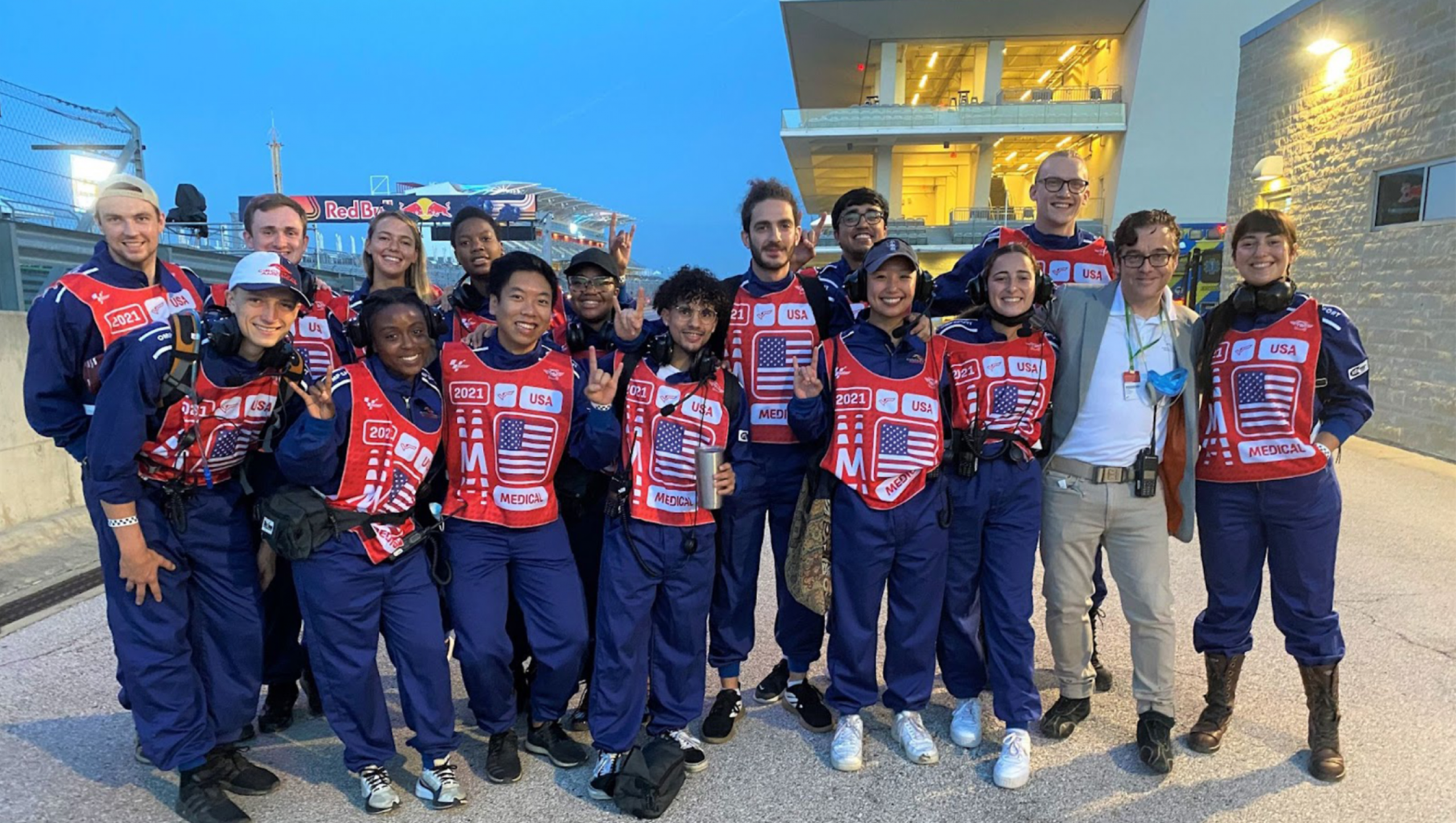This post is authored by Anuska Martinez A., Lundyn C. Davis, Allison Edwards, Zane Cooke and Maius Bermejo, students at Dell Medical School, and John Bedolla, M.D., assistant professor in the Departments of Medical Education and Surgery and Perioperative Care at Dell Med.

In early October, the fastest motorcyclists in the world raced at Circuit of The Americas, and through Dell Medical School’s motorsports internship program, we were there to take care of them.
“As part of their motorsports internship, Dell Med students serve as ground medics in moto grand prix racing. Ground medics rescue downed riders trackside. It’s the most important job on the track. No other medical school offers an opportunity like this,” said John Bedolla, M.D., assistant professor at Dell Med.
Riders raced by at speeds our eyes could scarcely comprehend, and yet, like astute clinicians, we learned to carefully observe riders as they leaned into turns to predict who might fall. When riders fell, we immediately raced to the scene to assess them and give race control a rider code, which is critical for determining the medical needs of a downed rider.
“The students performed marvelously,” said Bedolla. “Their rider codes were timely and accurate, and not once did they break the circuit’s No. 1 safety rule: Never get on the racing surface without permission from race control.”
First-year medical students Allison Edwards and Zane Cooke responded to a high-speed, multiple-motorcycle crash in the Moto 3 race. “We turned our heads, and there was a motorcycle flying through the air and three riders skidding down the middle of the track, the other riders steering desperately to avoid hitting them. Dr. Bedolla red-flagged the race as we raced to the downed riders. Our training paid off: We rescued all three riders immediately, and they all walked away unharmed,” said Edwards.
The MotoGP experience reminded Lundyn Davis of why she spends so much time behind the books: “In a time when most of my work is being done behind a computer, learning the fundamentals of how to care for people in emergency settings was a good way to get out and experience some of what is possible.” Davis’ team received an honorary mention by race control.
Third-year medical student Maius Bermejo served as a ground medic and radio operator: “I was just so blown away by the dedication of everyone involved, including the riders, volunteers and fans themselves who come from all over the world, and everyone in race control and the Circuit of The Americas medical center who made sure everyone is safe.”
MotoGP is a testament to the capacity of the human body and minds of the riders and medical personnel. The MotoGP internship is a once-in-a-lifetime opportunity for medical students to remember what medicine can do for others. When it comes to street medicine, no experience compares to that of being a medic at MotoGP.
“Next up: Formula 1,” said Bedolla, already thinking of the next race.
We can’t wait!